Filter by
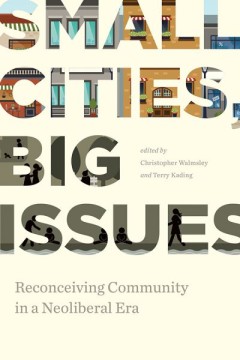
Small Cities, Big Issues Reconceiving Community in a Neoliberal Era
Small Canadian cities confront serious social issues as a result of the neoliberal economic restructuring practiced by both federal and provincial governments since the 1980s. Drastic spending reductions and ongoing restraint in social assistance, income supports, and the provision of affordable housing, combined with the offloading of social responsibilities onto municipalities, has contribute…
- Edition
- -
- ISBN/ISSN
- 9781771991636.01
- Collation
- -
- Series Title
- -
- Call Number
- 6 x 9, 334 pages
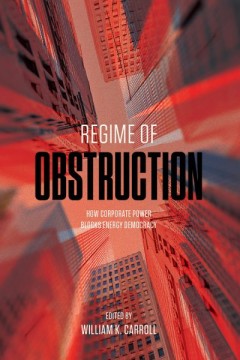
Regime of Obstruction
Regime of Obstruction aims to make visible the complex connections between corporate power and the extraction and use of carbon energy. Edited by William Carroll, this rigorous collection presents research findings from the first three years of the seven-year, SSHRC-funded partnership, the Corporate Mapping Project. Anchored in sociological and political theory, this comprehensive volume provid…
- Edition
- -
- ISBN/ISSN
- 9781771992893.01
- Collation
- -
- Series Title
- -
- Call Number
- 6 x 9, 528 pages
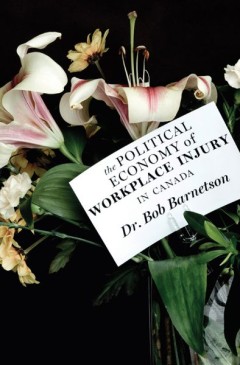
Political Economy of Workplace Injury in Canada
Workplace injuries are common, avoidable, and unacceptable. The Political Economy of Workplace Injury in Canada reveals how employers and governments engage in ineffective injury prevention efforts, intervening only when necessary to maintain the standard legitimacy. Barnetson sheds light on this faulty system, highlighting the way in which employers create dangerous work environments while the…
- Edition
- -
- ISBN/ISSN
- 9781926836003.01
- Collation
- -
- Series Title
- -
- Call Number
- 284 pages

Romancing the Revolution The Myth of Soviet Democracy and the British Left
Over two decades have passed since the collapse of the USSR, yet the words “Soviet Union” still carry significant weight in the collective memory of millions. But how often do we consider the true meaning of the term “Soviet”? Drawing extensively on left-wing press archives, Romancing the Revolution traces the reactions of the British Left to the idealized concept of Soviet democracy. F…
- Edition
- -
- ISBN/ISSN
- 9781926836126.01
- Collation
- -
- Series Title
- -
- Call Number
- 438 pages

Regime of Obstruction How Corporate Power Blocks Energy Democracy
Regime of Obstruction aims to make visible the complex connections between corporate power and the extraction and use of carbon energy. Edited by William Carroll, this rigorous collection presents research findings from the first three years of the seven-year, SSHRC-funded partnership, the Corporate Mapping Project. Anchored in sociological and political theory, this comprehensive volume provid…
- Edition
- -
- ISBN/ISSN
- 9781771992893.01
- Collation
- -
- Series Title
- -
- Call Number
- 6 x 9, 528 pages

Political Activist Ethnography Studies in the Social Relations of Struggle
Featuring research from Aotearoa (New Zealand), Bangladesh, Canada, Poland, South Africa, and the United States on matters as diverse as anti-poverty organizing, prisoners’ re-entry, anti-fracking campaigns, left-inspired think-tank development, non-governmental partnerships, involuntary psychiatric admission, and perils of immigration medical examination, contributors to this volume adopt a …
- Edition
- -
- ISBN/ISSN
- -
- Collation
- -
- Series Title
- -
- Call Number
- 6 x 9, 304 pages
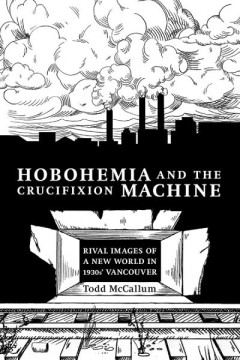
Hobohemia and the Crucifixion Machine Rival Images of a New World in 1930s V…
In the early years of the Great Depression, thousands of unemployed homeless transients settled into Vancouver’s “hobo jungle.” The jungle operated as a distinct community, in which goods were exchanged and shared directly, without benefit of currency. The organization of life was immediate and consensual, conducted in the absence of capital accumulation. But as the transients moved from …
- Edition
- -
- ISBN/ISSN
- 9781926836287.01
- Collation
- -
- Series Title
- -
- Call Number
- 332 pages

Health and Safety in Canadian Workplaces
Although they address the gendered and racialized dimensions of new work processes and structures in contemporary workplaces, Foster and Barnetson contend that the practice of occupational health and safety can only be understood if we acknowledge that workers and employers have conflicting interests. Who identifies what workplace hazards should be controlled is therefore a product of the broad…
- Edition
- -
- ISBN/ISSN
- -
- Collation
- -
- Series Title
- OPEL (Open Paths to Enriched Learning)
- Call Number
- 272 pages
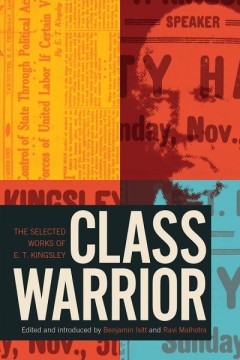
Class Warrior The Selected Works of E. T. Kingsley
In October 1890, Eugene T. Kingsley’s life changed irrevocably while working as a brakeman on the Northern Pacific Railway when he was injured in a fall between two rail cars. While recuperating in hospital after the amputation of both legs, he began reading the works of Karl Marx. Joining a popular socialist movement, his activism eventually brought him to Vancouver, B.C. where he founded th…
- Edition
- -
- ISBN/ISSN
- -
- Collation
- -
- Series Title
- -
- Call Number
- 6 x 9, 400 pages
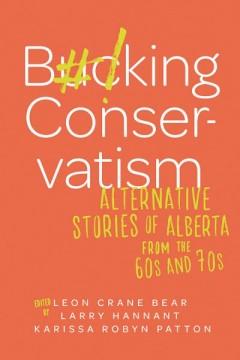
Bucking Conservatism Alternative Stories of Alberta from the 1960s and 1970s
With lively, informative contributions by both scholars and activists, Bucking Conservatism highlights the individuals and groups who challenged Alberta’s conservative status quo in the 1960s and 70s. Drawing on archival records, newspaper articles, police reports, and interviews, the contributors examine Alberta’s history through the eyes of Indigenous activists protesting discriminatory l…
- Edition
- -
- ISBN/ISSN
- -
- Collation
- -
- Series Title
- -
- Call Number
- 368 pages
 Computer Science, Information & General Works
Computer Science, Information & General Works  Philosophy & Psychology
Philosophy & Psychology  Religion
Religion  Social Sciences
Social Sciences  Language
Language  Pure Science
Pure Science  Applied Sciences
Applied Sciences  Art & Recreation
Art & Recreation  Literature
Literature  History & Geography
History & Geography